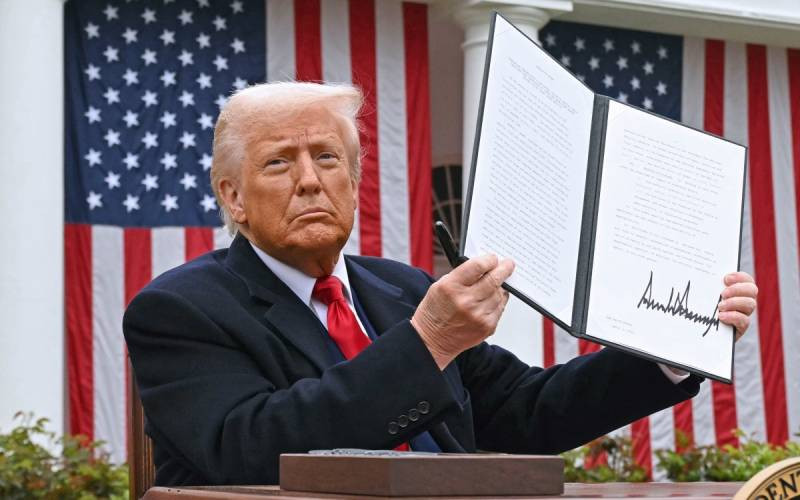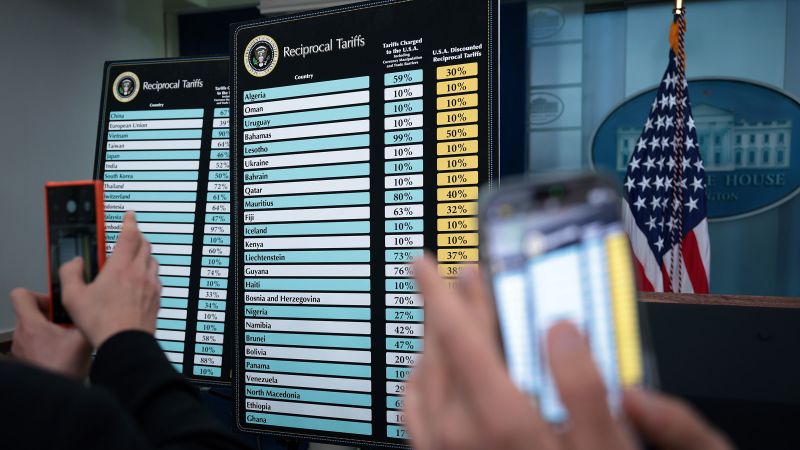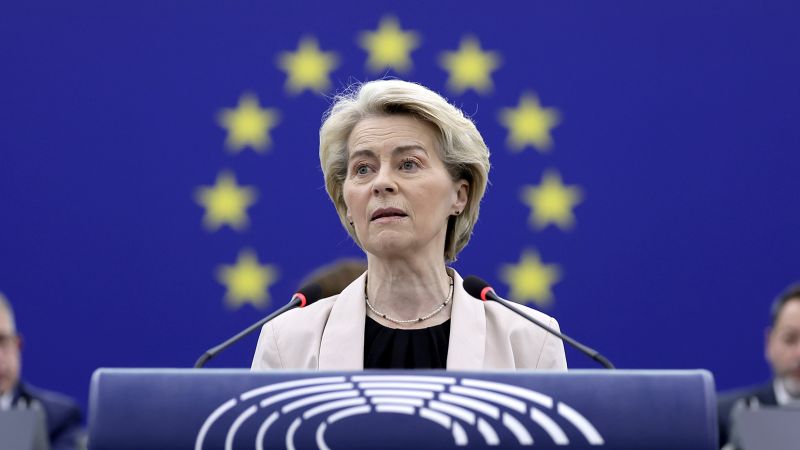Trump's Reciprocal Tariffs: Impact and Affected Parties

On April 2, 2025, President Donald Trump announced the implementation of "reciprocal tariffs" targeting numerous countries, a move intended to address what he described as longstanding unfair trade practices. This initiative, unveiled during an event in the Rose Garden at the White House, marks a significant shift in U.S. trade policy, potentially leading to extensive negotiations and possible retaliatory actions from affected nations.
Trump's plan centers on the principle of "an eye for an eye, a tariff for a tariff, same exact amount," as he stated during his election campaign. The administration aims to level the playing field by imposing tariffs on imports from countries that have higher duties on U.S. products. This strategy extends beyond tariff rates to include non-tariff barriers such as value-added taxes (VATs), which officials believe create imbalances in international trade.
According to a White House official, the administration will prioritize examining countries with the highest trade deficits or most significant imbalances with the United States. Commerce Secretary nominee Howard Lutnick indicated that tariffs could be implemented as early as April 2, following the completion of studies on the issue. These tariffs may be invoked under legal authorities related to national security, unfair trading, or emergency economic powers.
The announcement included specific examples of trade imbalances. The U.S. has a 2.5 percent tariff on ethanol, while Brazil charges 18 percent on U.S. ethanol exports. The European Union's 10 percent tariff on imported cars was also criticized, contrasting with the United States' 2.5 percent levy. However, analysts have noted that the U.S. imposes higher tariffs on certain products like light trucks.
The imposition of reciprocal tariffs has several potential complications. Addressing non-tariff issues like VATs could significantly raise the average effective tariff rate. Analysts at the Tax Foundation have pointed out that VATs are border-adjusted, which means they rebate tax on exports and impose a tax on imports, making them trade neutral despite their appearance. This could create challenges in negotiations with other countries.
Maurice Obstfeld of the Peterson Institute for International Economics (PIIE) warned that other countries might retaliate if the U.S. aggressively enforces these tariffs. Such retaliation could lead to increased costs for importers and create uncertainty for businesses. The goal, according to Obstfeld, appears to be to encourage countries to favor the United States by, for example, reducing tariffs on U.S. autos while maintaining tariffs on autos from other foreign countries.
In a related development, President Trump imposed a 50% tariff on all imports from Lesotho, the second-highest rate after China. Additionally, a baseline 10% tariff will be applied to all countries' imports to the U.S., with additional reciprocal tariffs for numerous countries, including several in Africa. These measures are slated to take effect on April 5 and April 9.
During the announcement, Trump asserted that the U.S. had been exploited by "cheaters" and "pillaged" by foreigners, framing the tariffs as a declaration of economic independence. The full list of reciprocal tariffs by country was presented on a chart, highlighting countries that charge higher tariffs on U.S. goods or impose non-tariff barriers.
The U.S. Department of State has also reaffirmed its commitment to ensuring visa holders comply with U.S. laws and immigration regulations, emphasizing that visa screening is ongoing and non-compliance could result in visa revocation and deportation.
The implications of these reciprocal tariffs are far-reaching, potentially reshaping international trade relations and prompting significant economic adjustments for both the United States and its trading partners. The coming weeks and months will be crucial in determining the ultimate impact of this policy shift.









